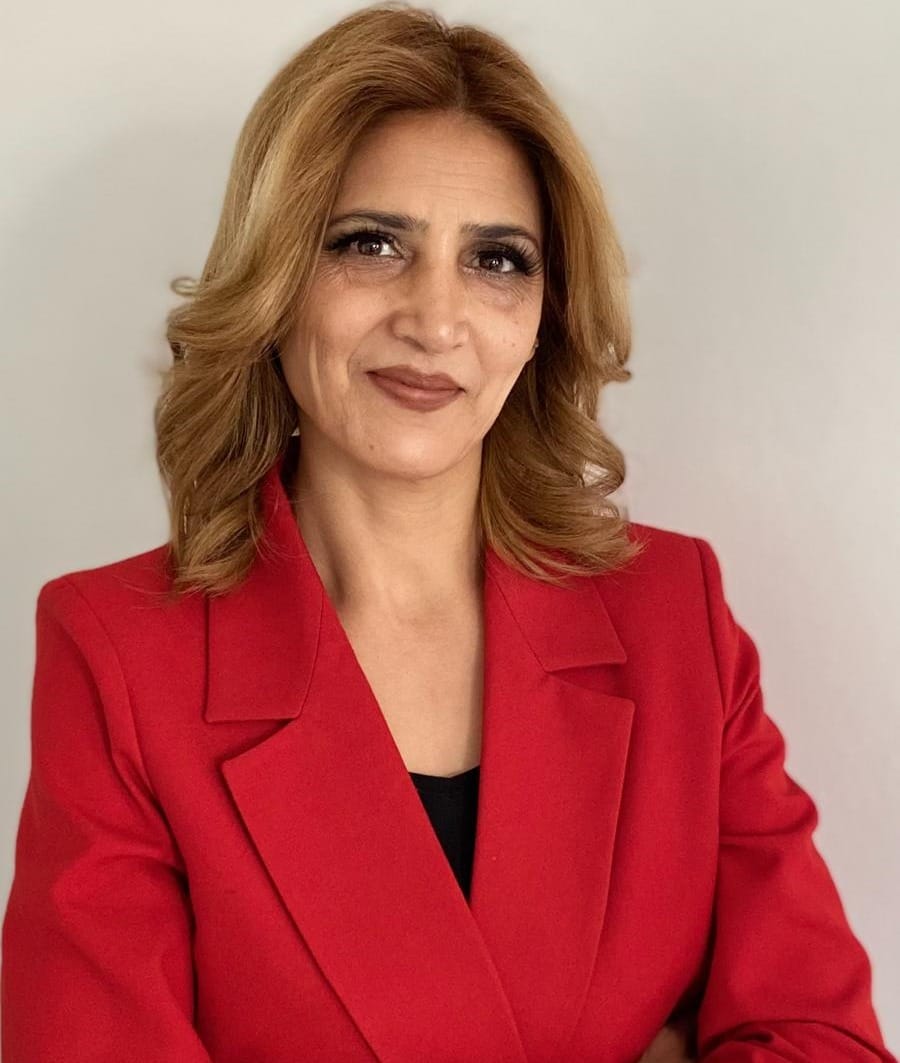Beyond Survival: Addressing the Mental Health Needs of Afghan Migrant Women

By: Shaima Seddiqi Translated and adapted from interviews with Afghan women in displacement
Acknowledgments: Interviews were conducted with permission and names have been anonymized to protect privacy.
“Even if the cage is gold, it is still a cage.”
When 23-year-old Zahra Ahmadi left Afghanistan three years ago with her husband, she carried the bright, ordinary dream of a student accepted into pharmacy school. The collapse of the government on Aug. 15, 2021, closed doors overnight. University classes stopped, and plans to become a pharmacist went dark. In Afghan society where girls are told there are only two paths—education or marriage—she found herself married and on the road to exile.
Before getting settled in the US, she spent several months in a refugee camp in a third country. Life in the refugee camp felt like a cage.
“I was a bird used to flying in the open sky,” Zahra said. “Suddenly I was trapped in a small, closed space. Even the small arguments with my husband turned into exhausting fights. I would cry and feel like there was no meaning left to living.”
Zahra Ahmadi had never used formal mental-health services. At first, she didn’t even know they were available and she worried no one could understand or help. One day in the dining hall, she noticed a woman whose calm, attentive presence made her pause. The woman was a therapist who had worked for years with women carrying deep wounds. She listened to Zahra without any judgment. That first conversation felt like rain on a cracked field; the relief was immediate and real.
These informal conversations grew into regular sessions. At first Ms. Zahra Ahmadi spoke of concrete losses; the unfinished semester, the crushed dream, the endless homesickness. But the therapist gently guided her beyond listing sorrows. She showed Ms. Zahra Ahmadi that her deepest pain was being locked in a past she could not change. The sessions taught a different skill: how to accept pain and, from within it, find steps toward a new life.
The sessions were simple—silence, tears, a steady listening presence—and the effect was powerful. Zahra began keeping a small journal, writing three small things each night that she was grateful for: a husband’s smile, a starry sky, a new friend. That tiny practice widened a crack of daylight into a doorway. She and her husband stopped blaming each other and started to recognize they were both victims of circumstances. Their angry conversations turned into patient, caring talk. The cold container where they lived slowly warmed with small acts of kindness.
One evening, sitting on a bench in the camp, after a visit with the therapist and looking up at the stars, she realized: “Maybe my wings were tied by fate, but I can still sing. I can learn a different kind of flight—one that lives inside me.” The young bird in the golden cage had not vanished; she had learned to keep hope lit and begin to rebuild.
Under the Shadow of a Mother’s Anxiety
For Nargis Salami, who is about sixty years old, she describes a quieter but no less painful struggle. Before the collapse of the republic government, she lived a normal life centered on family in Afghanistan; weddings, children and routines. Forced migration uprooted that life. In a new country she carried the grief of loss plus a new, gnawing fear: how her children—especially the youngest daughter, who was a child at the time of migration—would adapt to a different culture.
“My faith and traditions are the backbone of who I am,” said Nargis Salami. “When I see my daughter changing the way she dresses and behaves, I worry it’s not just personal choice — it feels like she’s drifting away from our religious and cultural roots. I’m afraid of what people in our community might say, and I don’t want our family to lose its honor.”
“I never say harsh words to my daughter,” she said. “ My grief is not about fabric or style, it is about a light I fear she is losing.”
Nargis prays, weeps quietly, and longs to find professional help, but does not know where to begin. She worries about the stigma behind needing mental health care, the cost and whether anyone can truly understand her situation.
Although mother and daughter disagree, a quiet thread of love connects them. She believes that with time, conversation and the right support, her daughter may come to understand the mother’s feelings, not by force but by experience. She is seeking counseling to calm her own anxiety and to strengthen the family ties that migration has strained.
Healing Beyond Survival: Therapist Farzana Samimi on mental health for migrants
Farzana Samimi is an experienced therapist who has worked for more than seventeen years with vulnerable populations. She practiced in Afghanistan, spent seven years working with refugees in Turkey and now provides therapy in the U.S., focusing on immigrant women and families.
“Mental-health struggles affect both men and women,” says Samimi, a therapist who works closely with Afghan migrants. “But women often carry deeper emotional wounds — many grew up under strict patriarchal traditions, faced forced marriages, or were denied education. Then migration adds another layer of pain.”
According to Samimi, Afghan migrant women are among the most vulnerable. Yet, few seek therapy. “There’s so much stigma,” she explains. “People still think going to therapy means you’re crazy. Even educated women hesitate because they don’t always know the difference between normal emotional distress and serious illness.” She adds that helping newcomers understand what therapy actually is can take months of gentle explanation and trust-building.
For Samimi, individual therapy—especially in person—is often the most effective. “Eye contact, trust, that human connection—it changes everything,” she says. Group sessions, she notes, have their value too, but “one-on-one work allows deeper, more personal healing.”
Culture and language, she emphasizes, are central to this process. “Women’s identities are deeply tied to community,” Samimi says. “When they compare themselves with migrants who’ve been here longer, they can feel inadequate or lost. Having a therapist who speaks their language and understands their traditions is essential.”
Her practical advice is grounded and hopeful. “You have to accept this country as your new home—not just a waiting place,” she says. “Build a routine, learn the language, seek out work or study. If you feel caught between two worlds, therapy can help you grow roots again—step by patient step.”
From Samimi’s guidance and the stories of women she’s worked with, a few small but powerful practices stand out:
- A listening person matters. “Sometimes one nonjudgmental conversation can lift a heavy weight,” she says.
- Daily gratitude helps. One of her clients, Zahra Ahmadi, began writing down three small things she was grateful for each day — and found it opened a path back to hope.
- Normalize therapy. “Mental health care isn’t just for the ‘crazy,’” Samimi reminds. “It’s for anyone dealing with grief, stress, or change.”
- Start locally. She encourages migrants to look for community centers or refugee organizations that offer counseling in Dari, Pashto, or Farsi.
- Family conversations, not confrontations. “Gentle, curious dialogue—sometimes supported by a professional—can bridge painful generational divides,” Samimi says.
Additional Resources:
If this sounds familiar, you’re not alone. Finding the right therapist can take time, but these resources may help.
- For immediate emergency mental health assistance call or text 998 for the 998 Suicide & Crisis Lifeline.
- Open Path Psychotherapy Collective offers a variety of affordable therapists all over the country. Some can provide telehealth therapy to patients.
- Psychology Today Offers a wide variety of therapists all over the country to contact. You can find the best fitting therapist through filtering insurance, language, age and specialties.
- Center for Cognitive Behavioral Therapy & Mindfulness offers trauma-focused therapy.
